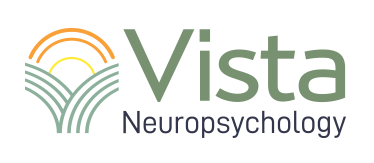GENERAL QUESTIONS
Training and preparation in clinical neuropsychology specifically entails:
- completion of a doctoral degree in psychology from an accredited university training program,
- internship in a clinically relevant area of professional psychology,
- the equivalent of two years of additional specialized training in clinical neuropsychology, and
- state or provincial licensure to practice psychology and/or clinical neuropsychology independently.
Attainment of the ABCN/ABPP Diploma in Clinical Neuropsychology (i.e., board certification) is the clearest evidence of competence as a clinical neuropsychologist, assuring that all of these criteria have been met.
The neuropsychological evaluation consists of gathering relevant historical information, a neuropsychological examination, analysis and integration of data and findings, and feedback to the referral source. History is obtained through reviewing medical and other records, and through interview with the patient. With the patient’s permission, family members or other knowledgeable persons may be interviewed and asked to share their perceptions and perspective on important aspects of the history and symptoms.
The examination typically consists of the administration of standardized tests using oral questions, paper and pencil, computers, the manipulation of materials such as blocks and puzzles, and other procedures.
Depending on the scope and intent of the evaluation, testing may focus on a wide range of cognitive functions including attention, memory, language, academic skills, reasoning and problem solving, visuospatial ability, and sensory-motor skills. The neuropsychologist may also administer tests and questionnaires concerning psychological aspects of mood, emotional style, behavior, and personality. Some or all of the testing may be administered by a neuropsychology technician, under the direct supervision of the clinical neuropsychologist.
The amount of direct contact time required for the patient will depend on the scope of the specific evaluation; the evaluation might be a brief screening requiring as little as an hour or a comprehensive assessment spread requiring 8 hours or more, spread out over several appointments.
After the evaluation, the clinical neuropsychologist will analyze all of the data and information gathered by history and examination, integrating it into a comprehensive report. Again, depending upon the referral issue and scope of the evaluation, the report will provide a description of neuropsychological strengths and weaknesses, patterns of findings that have diagnostic significance, and recommendations for further evaluation and/or treatment. The clinical neuropsychologist may schedule a follow-up consultation with you to review the findings and recommendations, and address any questions or concerns you may have.
Depending on the situation, this type of follow-up can also be provided over the telephone or through other forms of communication. With your permission, the report can be shared with the doctor (or other professional) who initiated the referral and other health care providers involved in your care.
Rehabilitation is an integrated program of interventions that empower individuals with disabilities and chronic health conditions to achieve “personally fulfilling, socially meaningful, and functionally effective interaction” in their daily contexts (Maki & Riggar, 2004, p. 1). Rehabilitation Psychology is a specialty area within psychology that focuses on the study and application of psychological knowledge and skills on behalf of individuals with disabilities and chronic health conditions in order to maximize health and welfare, independence and choice, functional abilities, and social role participation, across the lifespan. Rehabilitation Psychologists are uniquely trained and specialized to engage in a broad range of activities including clinical practice, consultation, program development, service provision, research, teaching and education, training, administration, and development of public policy and advocacy related to persons with disability and chronic health conditions.
Rehabilitation psychologists’ work includes assessment and intervention regarding the range of physical, personal, psychosocial, cognitive, and behavioral factors that may be affected, such as neurocognitive status, sensory difficulties, mood/emotions, desired level of independence and
interdependence, mobility/freedom of movement, self-esteem and self-determination, behavioral control and coping skills, subjective view of capabilities, and quality of life. In addition, rehabilitation psychologists consider the influences of culture, ethnicity, language, gender, age, developmental level, sexual orientation, social network, residence and geographic location, socioeconomic status, and relative visibility and/or assumption of disability on attitudes and available services.
Insurance plans are not currently accepted for assessment or psychotherapy services, however, we are happy to assist in providing invoices/forms for insurance reimbursement.
It can be useful to contact your insurance company prior to your appointment, to check their policies. The following questions can be helpful:
Do I have mental health insurance benefits?
- Importantly, there are two types of therapy services often provided. We are happy to help clarify the type of service for your individual case.
- Health and behavior intervention (in relation to a medical condition)
- Individual psychotherapy (in relation to psychological condition)
Is a referral required from my primary care doctor or other physician?
Does insurance require a pre-authorization for health behavior intervention, psychotherapy, or neuropsychological assessment?
What is the coverage or reimbursement amount per therapy session?
What is the coverage or reimbursement amount for neuropsychological assessment?
Cancellation policy varies based on service, evaluation purpose and structure. Please contact Vista Neuropsychology for specific policy confirmation.
In general, for psychotherapy and intervention:
Cancellation required 48 hours in advance. Fees may apply. See COVID-19 Policy for additional protocols
For neuropsychological assessment, cancellation fees are based on average cost of evaluation.
- Fourteen or more days notice – No Fee
- Seven to 13 days notice – ½ Estimated Fee
- Less than seven days – Full Estimated Fee
- Fee waived if cancelled due to COVID-19 and rescheduled within 30 days.
